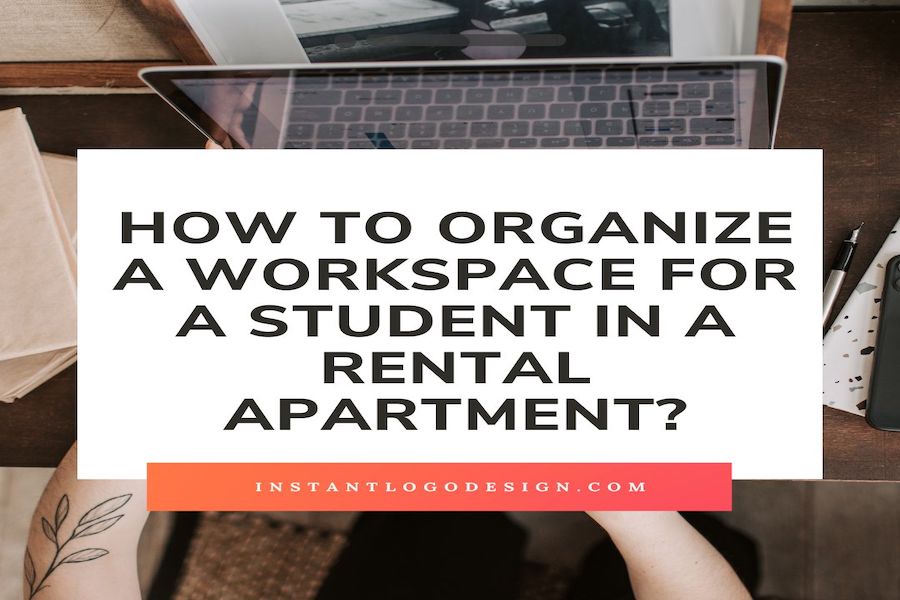In keeping an orderly workspace in school or college, students are often forced to discover how close cleanliness is close to godliness.
Unorganized spaces can lead to many distractions, eventually hindering your productivity and concentration. In addition to maintaining your workspace’s organization, a schedule is another consideration in organization space.
This is beneficial for improving your efficiency and grades as well. Some websites can help you achieve this as well, including Writemypaper4me.
But before we dive further into that, here are a few organizational techniques that can provide peace of mind and enhance your study habits simultaneously, even if you live in a rental apartment.
Put money into appropriate furniture.
You require a clean, vast workspace for studying, and you should ensure enough space to accommodate your laptop, computer, reference materials, and other peripheral devices.
There must be space to keep your things like a storage space. If your bedroom is overcrowded, try the online storage searcher to locate affordable remote storage.
Student furniture rentals are a cost-effective method of ensuring you have an appropriate space. Furniture purchases can be costly, especially on a college budget. That’s why renting is a cost-effective alternative in addition to how it can make moving easier.
Set up your desk according to the frequency of use.
If you don’t utilize your printer or scanner daily, you shouldn’t have it in your work area. Make sure you limit the things in your workspace and only place the necessary ones.
Separate your workspace into zones suitable for working and office supplies and reference items.
Set study time for the day.
Set aside time for each day to review your notes and study materials. After a month, sticking to the appointed time for learning outside the class can become routine.
This helps to establish consistency and reduces the need to study. You can organize your studies by setting timetables like those you can find on Studybounty.
Of course, always delegate the lessons and chapters you need to review for the day and study at a comfortable pace.
Define a working area.
As tempting as it sounds, studying in bed will significantly affect your productivity. The brain associates the area with sleeping, making it hard for your brain to interpret it as a workspace.
If you do not have a desk in your living space, you could easily convert an area surrounding you into a perfect study space.
Consider putting all the necessary stationary at your kitchen table and removing any distracting objects (like the dishes you’ve tried to avoid) to help you concentrate.
Maintain the space in order.
A cluttered space means a cluttered mind. If this is your study space, its disorganization can affect your grades and work.
According to a Princeton University’s Neuroscience Institute study, clutter prevents you from focusing on a specific task and processing information. Clutter can also cause stress and anxiety, which can affect your studies.
So what can you do? A decision to invest in binders or wall calendars could be a fantastic option to manage your home and help you feel in control. This is also true for your computer. Organizing your files is essential to prevent any unnecessary stress.
Limit your distractions.
No one can deny that technology and gadgets can really be distracting! It’s too easy to lose track of 45 minutes scrolling on social media platforms and accomplish nothing.
A little motivation can help!
The best way to control this temptation is to set your airplane mode, put it away in a drawer, and make every effort to keep it from reaching.
If you are in a communal apartment, playing music to reduce background noise or listening to the ambient sound is possible, as it has been proven to enhance your creative cognitive abilities.
Setting up a system of rewards is a good way to stimulate yourself to do something. For example, if you finish an essay without any distractions, reward yourself, like watching a video or taking a nap.
Conquer procrastination by breaking down a large project into smaller parts. Motivating yourself to complete small tasks is more manageable than completing a huge project.
But, if you find it challenging to study or get work done, divide your time effectively. Try taking a 10-minute break for every 45-50 minutes of work. Studies show that taking breaks helps you remember information and increases productivity.
Find some light in the room.
Different rooms have different lighting needs, but ideally, every room should have three different types of lighting.
The main categories of lighting include general lighting that will illuminate the room at large; task lighting for reading, preparing meals, or desk work; and decorative accent lighting that creates ambiance.
The artificial light can create eyestrain and alter our melatonin, making us feel exhausted.
Meanwhile, the natural light is great to keep us alert. If it’s in the morning, you can use them and get the necessary vitamin D. It will not only help you avoid eye strain, but it can also help you save energy.
Conclusion
All thanks to StudyCrumb for these helpful tips and ideas!
If you can organize your study area, you will significantly improve your chances of being successful as an undergraduate.
While studying, reduce distractions, so you will focus better and spend less time on the task. Don’t forget proper lighting; your eyes and mind will say thank you for it.
Having the best study tools and planning your time properly will alleviate many of the pressures associated with being a student and renting an apartment and give you more time to enjoy yourself.



